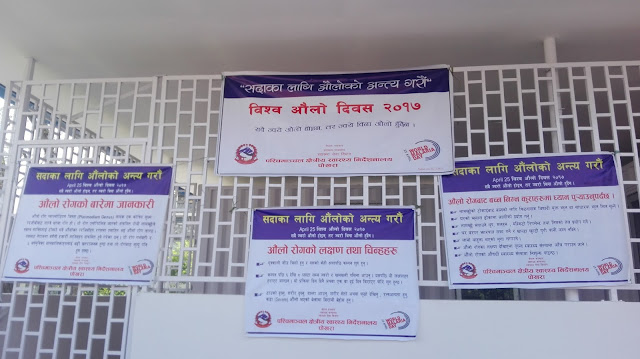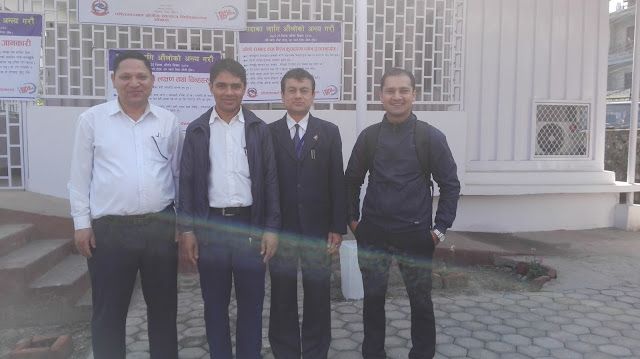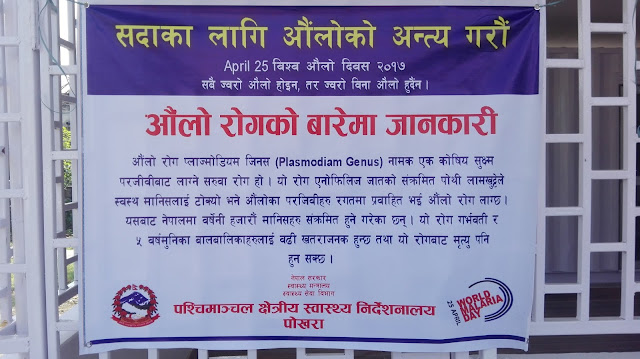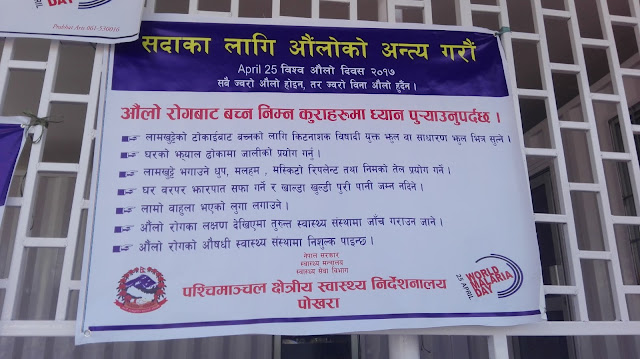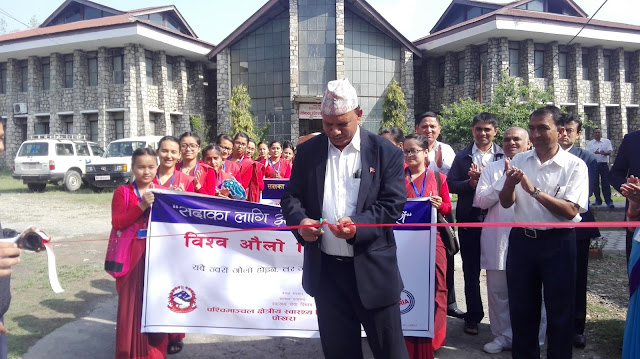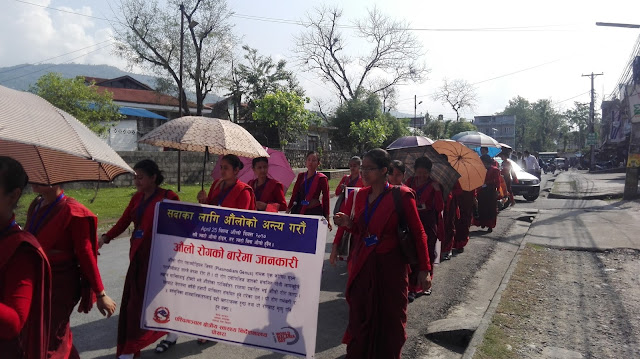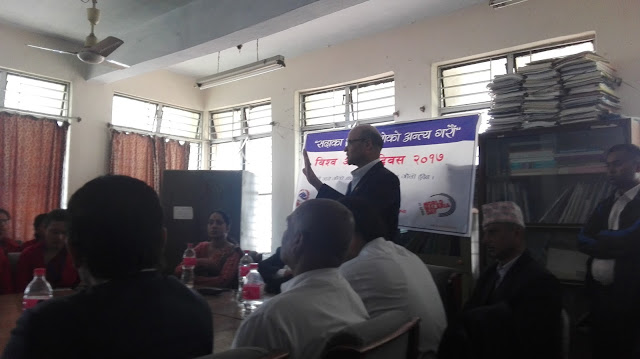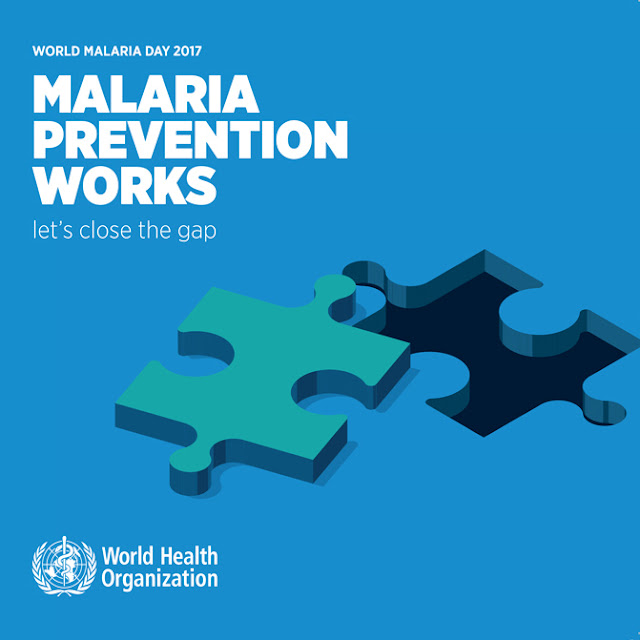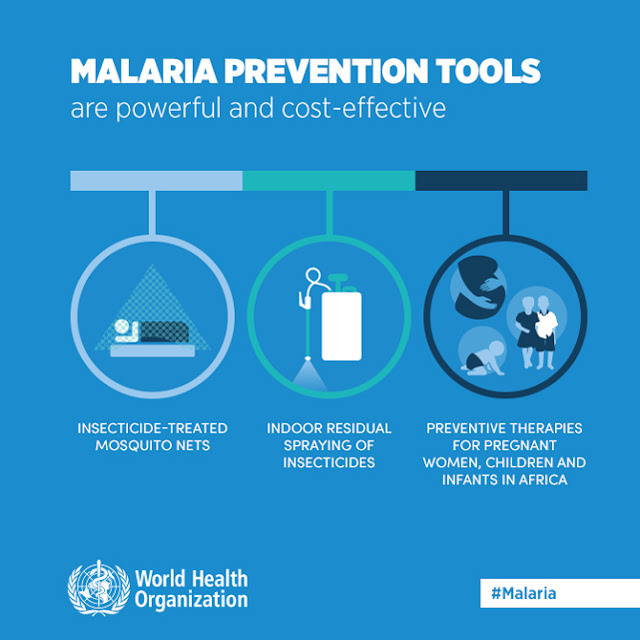World Malaria Day gives people the chance to promote or learn about the efforts made to prevent and reduce Malaria around the world. It is observed on April 25 each year.
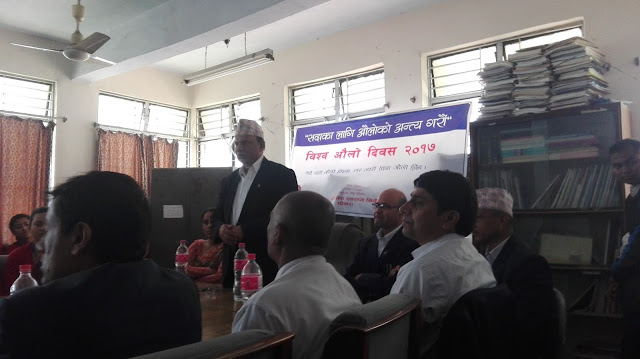 |
| RHD, Dr. Taranath Poudel, WRHD |
The World Health Organization Regional Office for Africa (WHO/AFRO) announced that Ghana, Kenya, and Malawi will take part in a WHO-coordinated pilot implementation programme that will make the world’s first malaria vaccine available in selected areas, beginning in 2018.
The injectable vaccine, RTS,S, was developed to protect young children from the most deadly form of malaria caused by Plasmodium falciparum. RTS,S will be assessed in the pilot programme as a complementary malaria control tool that could potentially be added to the core package of WHO-recommended measures for malaria prevention. WHO
- Malaria is a life-threatening disease caused by parasites that are transmitted to people through the bites of infected female Anopheles mosquitoes.
- In 2015, 91 countries and areas had ongoing malaria transmission.
- Malaria is preventable and curable, and increased efforts are dramatically reducing the malaria burden in many places.
- Between 2010 and 2015, malaria incidence among populations at risk (the rate of new cases) fell by 21% globally. In that same period, malaria mortality rates among populations at risk fell by 29% globally among all age groups, and by 35% among children under 5.
- The WHO African Region carries a disproportionately high share of the global malaria burden. In 2015, the region was home to 90% of malaria cases and 92% of malaria deaths.
NEPAL:
Read Also:
Disease Control: Malaria (Background, Vision, Mission, Goals, Objectives & Target), Nepal


